DJ Melzi is leading Amapiano’s next chapter. At just 23, the platinum-selling producer has become the most-followed Amapiano DJ in the UK, with over a million fans across Instagram and TikTok and more than 40 million streams between YouTube and Spotify. But behind the numbers is an artist with a clear intention: to take Amapiano global, while staying true to his spiritual, soulful, and tribal-infused sound.
Born in South Africa and now based in London, Melzi made his mark back home with a string of successful albums before relocating to the UK to inject new life into the Amapiano scene. Since then, he’s lit up clubs, festivals, and even members’ lounges across the country, opened for East African icon Diamond Platnumz, and collaborated with artists like Fireboy DML and Cassper Nyovest. Now, with a new album on the way and what he calls his "hottest" single yet, Won’t Believe, about to drop, Melzi is stepping outside his comfort zone, blending Amapiano with Afrobeats, house, bass, and pop for a high-energy, feel-good sound made for global dance floors.
In this conversation, we speak to Melzi about his early love for DJing, the philosophy behind his genre-blurring sound, and how he’s balancing fame with study, entrepreneurship, and community-building. Known as Melzi Wabatho (“Melzi of the people”), he’s as grounded as they come, hosting fans for dinner or solving water crises in townships through his business.
Keep reading for a look into how DJ Melzi’s global takeover is only just beginning.
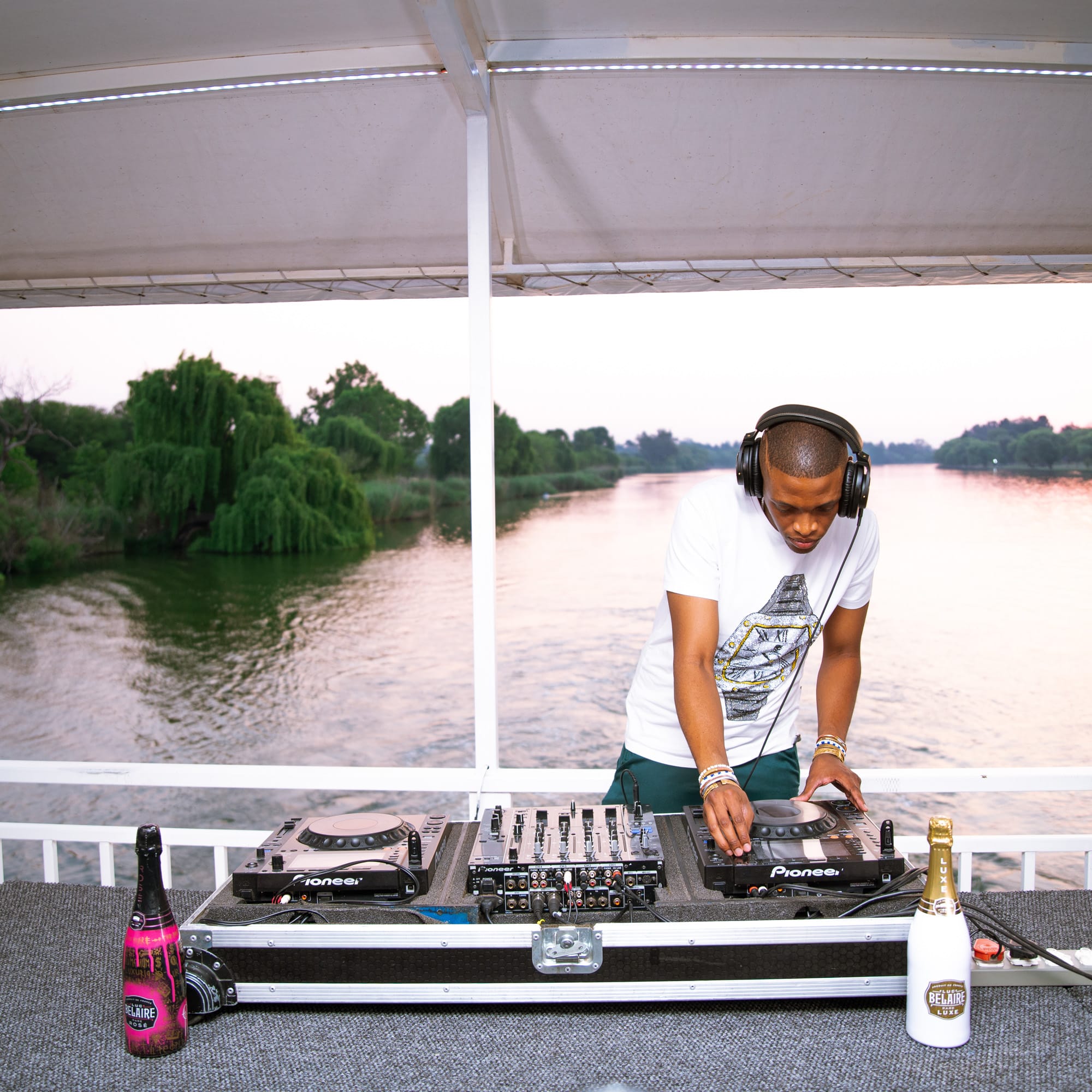
I find it really interesting that as a kid, you snuck off to learn how to DJ. I’m curious, what do you think drew you to it so deeply, even at that young age?
That’s always a bit of a tough question because I was so young that I don’t fully remember what pulled me in. But I’d say being surrounded by music lovers: my parents, my brothers, that environment definitely played a role in guiding me toward music.
And as you grew older, what kept you there? What made you want to stay in that space?
Honestly, it became a way for me to express myself. I’ve always been more introverted, not really one to be out and about all the time. I love people, but I tend to keep to myself. Music gave me a language, something I could speak through. I used to listen to a lot of music, and it connected with something deep in my soul. That’s what really kept me going.
Also, it’s just such a vast, beautiful art form. There’s so much to explore in it, and that still excites me to this day. I can’t get enough of it.
I get that. You’ve described your sound as spiritual, tribal, and emotional. So I want to go a bit deeper. What kind of philosophy or intention do you bring into the studio when you’re creating? What are you trying to make or communicate with your music?
The one thing I always try to carry with me is to just be myself. As time goes on, especially with the influence of social media and everything around us, it gets harder to stay grounded in that. But I’ve realised that I’m at my best when I’m not overthinking, when I’m not worried about what I should be creating, but just doing what feels right in that moment.
Speaking of staying true to yourself, you're working on making your sound more expansive. How do you balance that? You know, staying rooted in South African music while also trying to reach new audiences and push the sound globally?
Honestly, at first, I didn’t know how to find that balance. The first time I went overseas, I heard a lot of different interpretations of amapiano sounds I wasn’t used to hearing back home. It threw me off a bit. But over time, I had to learn how to play more commercially, which definitely helped me grow as a musician.
I started looking at people I look up to, like Black Coffee. I noticed how he plays a different set when he’s in South Africa compared to when he’s playing abroad. Even the way he releases and pushes his music shifts depending on the market. That opened my eyes to how you can adapt without losing your core. I'm still learning, I won’t lie, I’m not a master at it yet. But those are the kinds of references I use to help me navigate and find that balance.
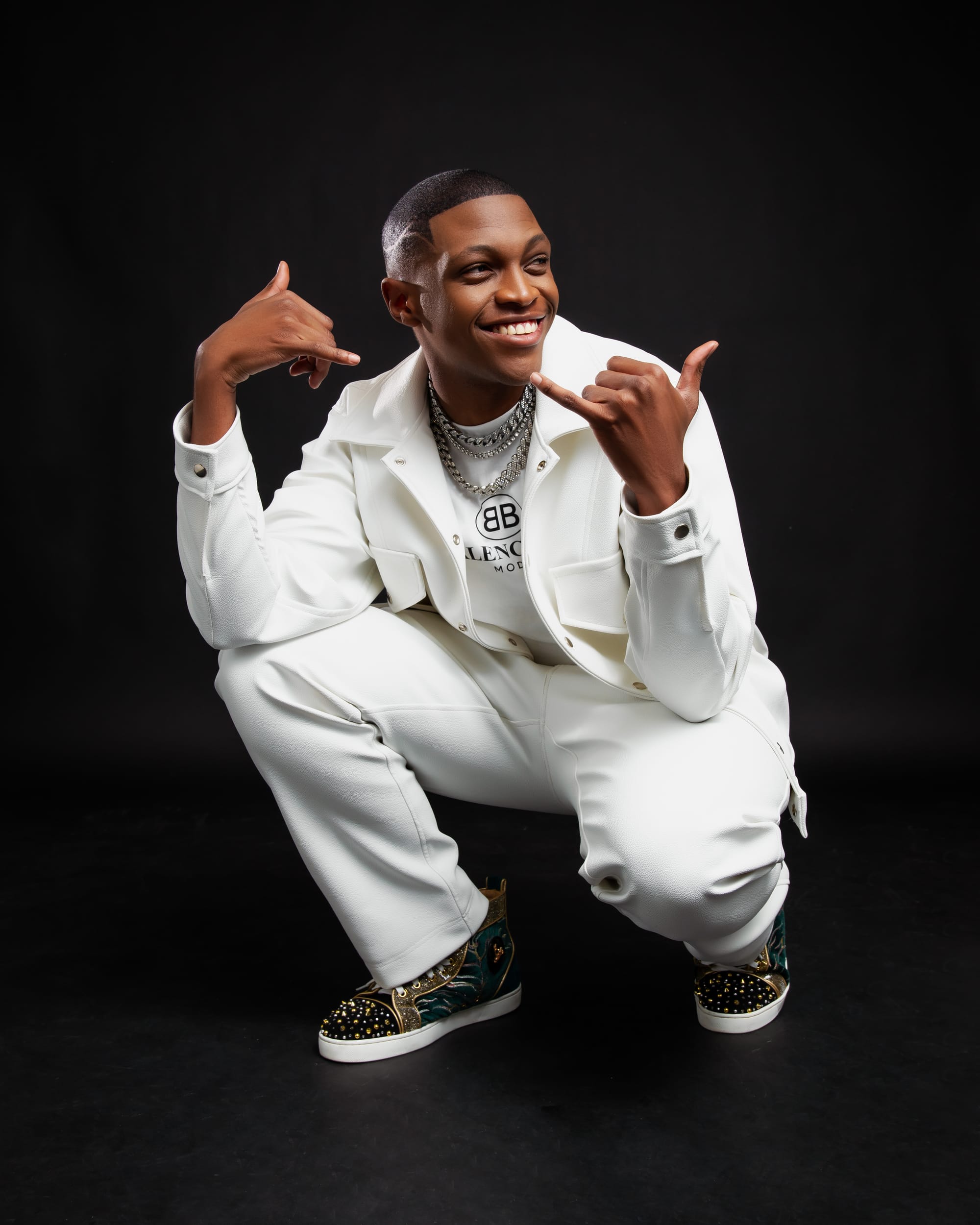
That makes a lot of sense. Now, just shifting a bit outside of music, I know you're a student, you run a business, and you’re also involved in charity work. What keeps you going across all these different spaces?
I’ve always had an entrepreneurial spirit, probably because I come from a family of entrepreneurs. So, I've always wanted to branch out and expand myself by solving real problems. My main focus on the business side is my water distribution company. There are serious water crises in some townships, and I saw that as a problem I could help solve. So, in many ways, all the things I do, music, charity work, business, they’re all aligned. They all come from the same value system, which is about healing. Whether it's emotional, mental, or even physical, I want to make people feel better in some way. Putting a smile on someone’s face is something that truly gives me joy from within. So I can definitely say they are of the same likelihood, and they all feed my soul at the end of the day, the same way music does
I highly believe my calling expands beyond music. I have always been driven and a big dreamer at heart. What drives me is remembering that where I was when I started is not where I am today. That’s enough proof that it’s definitely possible to go further.
On healing and solving problems, you’re also known for making yourself accessible to your fans. You’ve been intentional about building community, which is something I think a lot of artists struggle with. They often get caught up in the fame and lose that connection.
What would you say you're doing differently, and how do you think other artists can better build that sense of community?
Honestly, that all comes from home. It’s how I was raised. My mom always says, "Umuntu ngumuntu ngabantu", which means "a person is a person through other people." You can’t be human by yourself. That mindset really stuck with me. And I think it’s something more artists need to understand. At the end of the day, we’re not the ones streaming our own songs or sharing our own content; it’s the people. Without them, there’s literally nothing. No streams, no shows, no impact.
So I feel like I owe them. I work for them. It’s just like running a business: the best business owners are the ones who take care of their employees, respect them, value them, and treat them well. That’s how I approach my fanbase.Even now, I haven’t pushed music in a while, but the love is still there, especially when I’m back home in South Africa. People haven’t forgotten me, and that means everything. That kind of support gives me purpose. Even in moments where I feel lost or unmotivated, it keeps me going. So I really believe artists need to remember that the power doesn’t lie in just their talent, it lies in the people who support them.
That’s such a powerful way to look at it. I think the artists I feel closest to—not in a parasocial way, but in a real communal sense—are the ones I remember the most.
Exactly.
And the music industry can be overwhelming. There’s a lot of noise, a lot of ego. How do you manage to stay grounded and still visible, even while focusing on other things?
Like I said, at the end of the day, it’s not just about me. If I had to lay out my values in order, I’d say: people come first. Before money, before the industry, before the artist, people come first. That’s what keeps me level-headed.
My parents play a big role in that too. My mom actually downloaded Instagram just to keep up with me. She even checks the comments sometimes and goes, “People are commenting and you’re not responding, why are you doing that to people?” So now, if I post something and there are 20 comments within 15 minutes and I haven’t replied, she’s on my case! That kind of keeps me grounded.
That’s so funny.
Yeah, it’s mostly about how I was raised and, honestly, how I’m still being raised even now. That upbringing really shapes how I carry myself and how I relate to people.
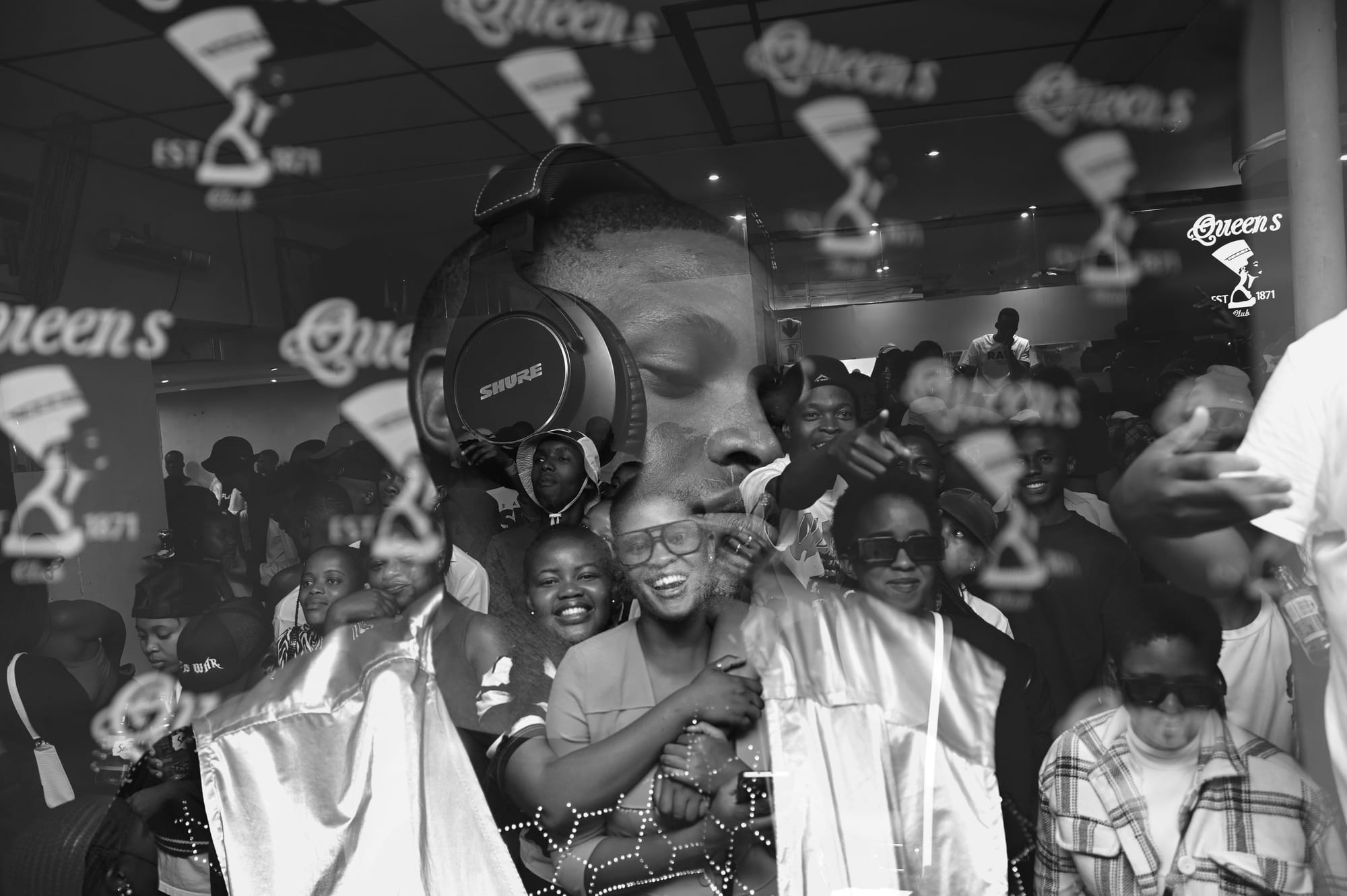
I love that. We use words like “community” and “my people” a lot, but who exactly are your people? When you say that, who are you really referring to? And how have they influenced your music, your sound, or even just your mindset?
When I say “my people,” I mean everyone in my circle. The ones in the studio with me, my family, and even my fans, both the ones I know and the ones I don’t. I stay in touch with some fans, ask them questions like, “What’s your favourite track? Why?” or “Be honest, how does this song make you feel?”
Sometimes they’ll say, “This one doesn’t really feel like you,” and that helps me see where I might be drifting away from my core. It pulls me back. And the artists I work with in the studio, they’re a big part of it too. Even when I hesitate or feel unsure, like when I want to try something experimental, they’ll say, “Just do it. There’s no wrong move. That ‘weird’ idea? Try it. It might work.”
So yeah, those are my people, the ones who challenge me, support me, and remind me to stay true to myself.
Thank you for sharing that. I want to take a bit of a detour back into music. You’ve described your upcoming music as stepping outside your comfort zone. What would you say is the biggest risk you’ve taken with this new record and the music you’re releasing now? What did you have to let go of or tap into to create this body of work?
I think the biggest risk I took was definitely musical. Amapiano has always been a very specific sound, especially for South Africans. I wouldn’t necessarily say it’s gatekept, but there’s a certain way it’s expected to sound. I’ve seen artists outside of South Africa experimenting with it and getting a lot of backlash. So, for me, even as a South African, the biggest scare for me was the thought, what would they say? How would my already-existing fans take it? What if they don’t like it? What would people say if I changed the sound to make it more adaptable to international listeners?
Those are questions that would always run through my mind. Especially with more people watching me, it has sometimes taken a toll on me in the sense that I would be scared to be myself. So to tap into it, I had to let go of social, psychological, and musical limitations and remember that my greatest power in this journey is truly being myself because there’s no one who could ever do that better than me, myself.
I also had to start studying music in a deeper way, looking at how other artists do it, especially those who perform globally. Do they change their sound? Do they approach performance differently? That became part of my learning curve.
Let me give you a simple example. Amapiano songs are long, 8 minutes, 9 minutes. It’s a whole journey.
Like gospel.
Exactly! Super long, immersive tracks. But I had to start learning how music is made commercially, especially internationally. The songs are shorter, straight to the point. There’s a lot going on sonically, but it’s all very concise. So I had to figure out how to keep that richness but tighten it up. In a way, I had to let go of that long-form journey style, even though I wouldn’t say I lost it completely. It’s more like I grew out of certain patterns.
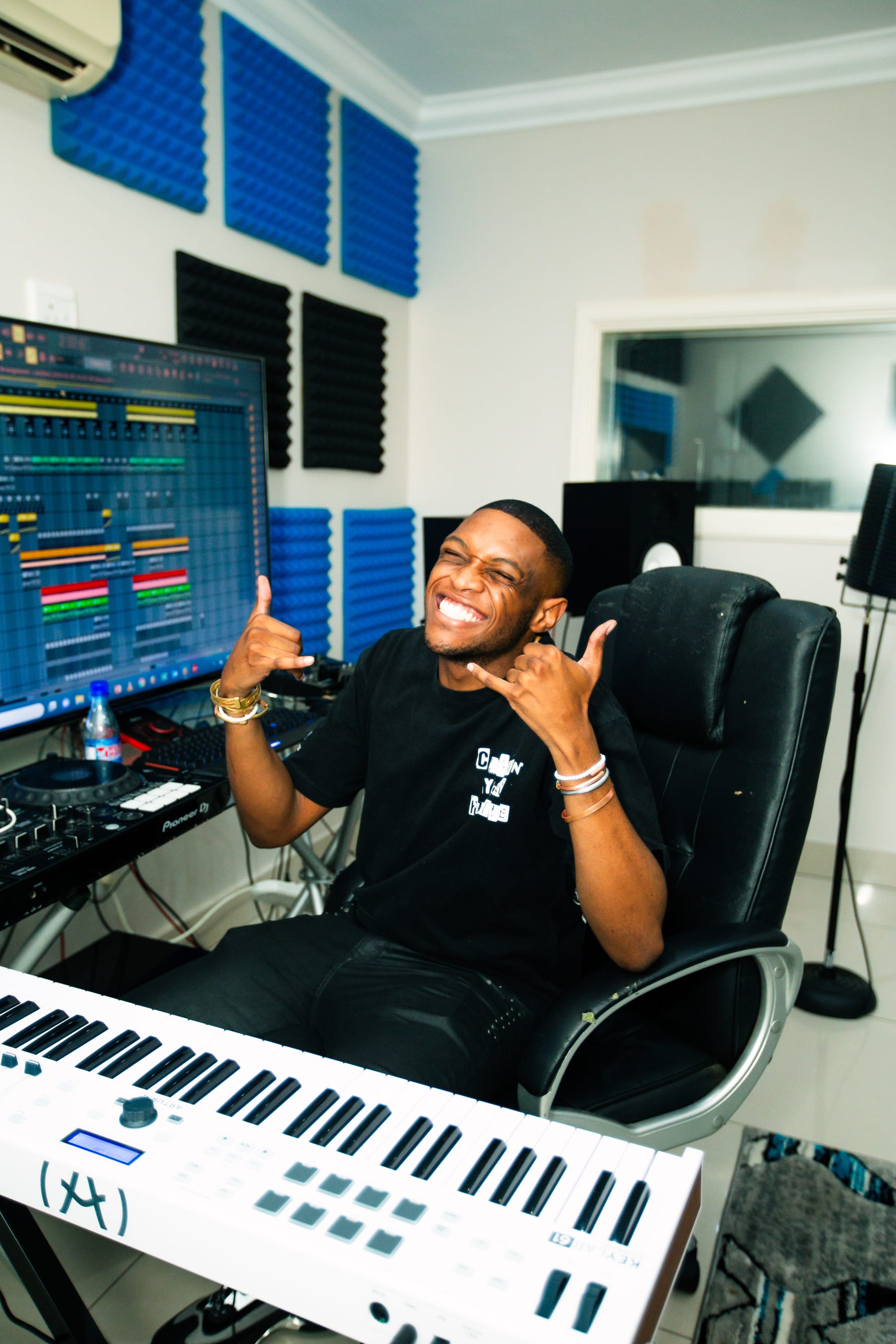
That’s a good way to put it: growth, not loss. What are you most proud of with this record? And what are you most excited for people to hear?
Honestly, I’m proud of the whole project. I’ve always envisioned myself as more than just an Amapiano artist. I want to be a house artist, a pop artist, someone who takes Amapiano further, to the level of pop, house, Afrobeats, even R&B. And with this record, I finally hear all those influences blending together.
When I listen to the song, I can’t even pinpoint one specific genre. I hear Amapiano, house, pop, Afrobeats, it’s everything I wanted to hear in music. And the tribal essence is still there. That balance is what I’m most proud of.
That sounds exciting. You mentioned international influences and appealing to different audiences. You’ve lived between South Africa and the UK; different scenes, different cultures. How would you say that experience has shaped your outlook, not just on music but on life in general? And what version of yourself do you think you’re becoming as you grow?
Uh-huh. I’d say I’m becoming a more equipped version of myself. I’m still the same person at my core, but now I’m more influenced, more knowledgeable. I’m learning a lot. Everywhere I go, I pick something up. That’s just who I am.
For example, like you mentioned, in the UK, whenever I’m there for a show or event, I try to arrive early so I can just listen. I pay attention to the music, to how people mix, how the crowd reacts. That kind of observing is part of my personal research.
That’s helped me a lot in understanding different cultures. Like in the UK, some things move faster and some slower. On stage, the energy is high, and it’s fast. But on the production side, I found things move much slower. I’ve always made music informally back home. In South Africa, I could record a track today, have it on my USB by midnight, and play it at a gig that same night. That’s a big difference. In South Africa, we can make 20 songs in a week, fully done. But in the UK, one song can take months, going back and forth with writers, producers, and teams. There are more layers and people involved.
So yeah, I’m learning a lot about the professional side of music abroad, while still holding on to the more spontaneous, informal process I know from back home. It’s really interesting to see how different cultures approach the same thing.
That’s interesting. I completely understand what you mean, being used to moving fast in your hometown, then having to adapt to a different pace somewhere else. It can be quite a shift.
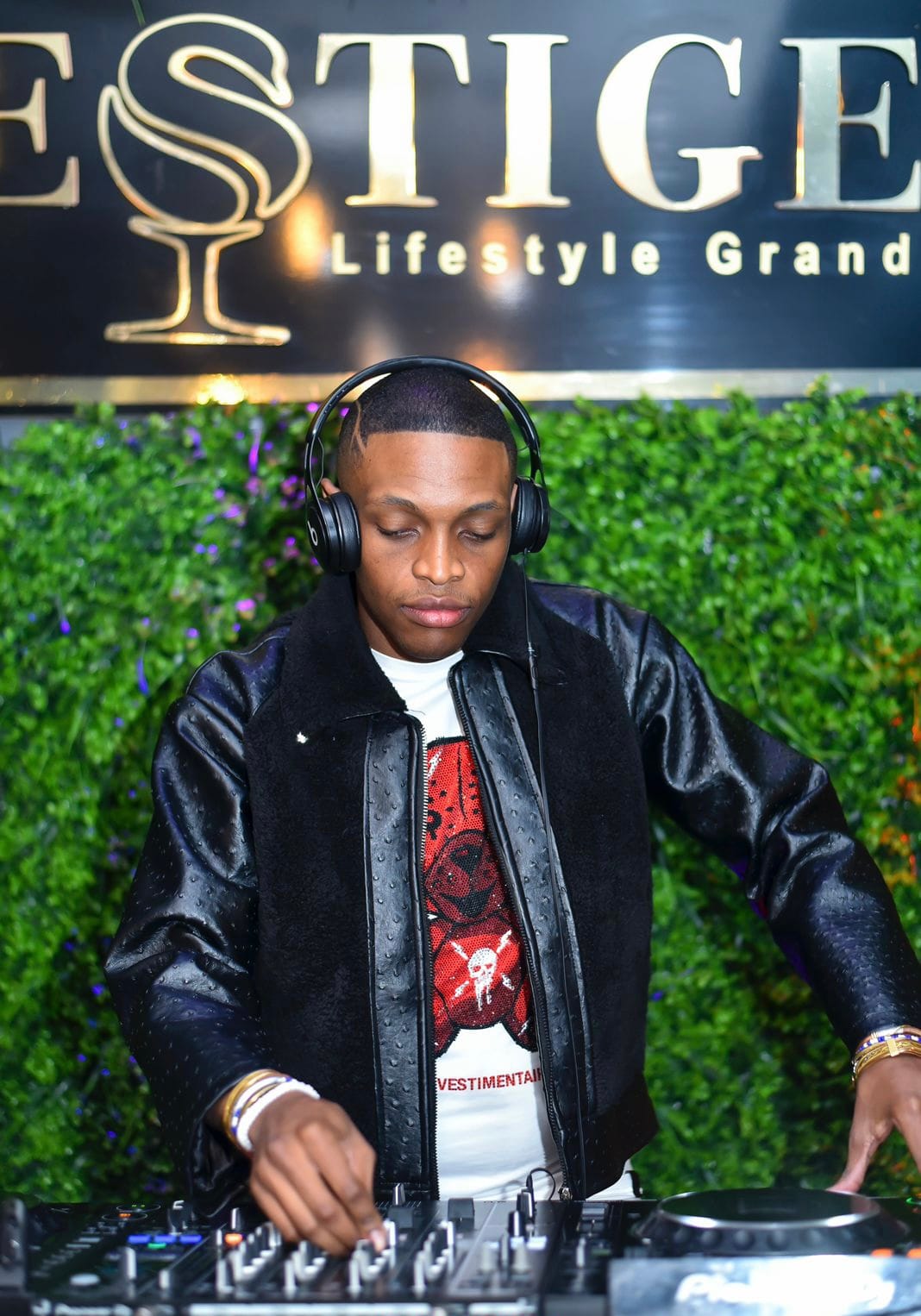
Okay, I think I’ve just got one last question. Looking ahead, what are you currently dreaming into existence for yourself?
I’m dreaming of being on bigger international stages, playing in more countries, experiencing more cultures, and just expanding what I do to a global level. I’m working with more producers now, and honestly, I’m just allowing myself to experience and envision a bigger version of myself, in every way possible. As an entrepreneur and a producer, I want to keep learning. At some point, I’d also love to study music, especially jazz. I want to understand more about everything I’m doing. The goal is to be more equipped, day by day. That’s what I’m working towards.
I really love that. Just showing up and continuing to learn. It opens you up to so much. You get more exposure, and you're able to connect with more people. So I’m definitely tapping into what you're dreaming of!
Exactly. Let’s go! I’m all for it.
Thank you so much for this chat. It was really fun!

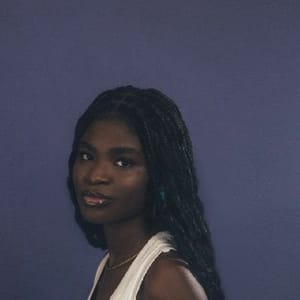
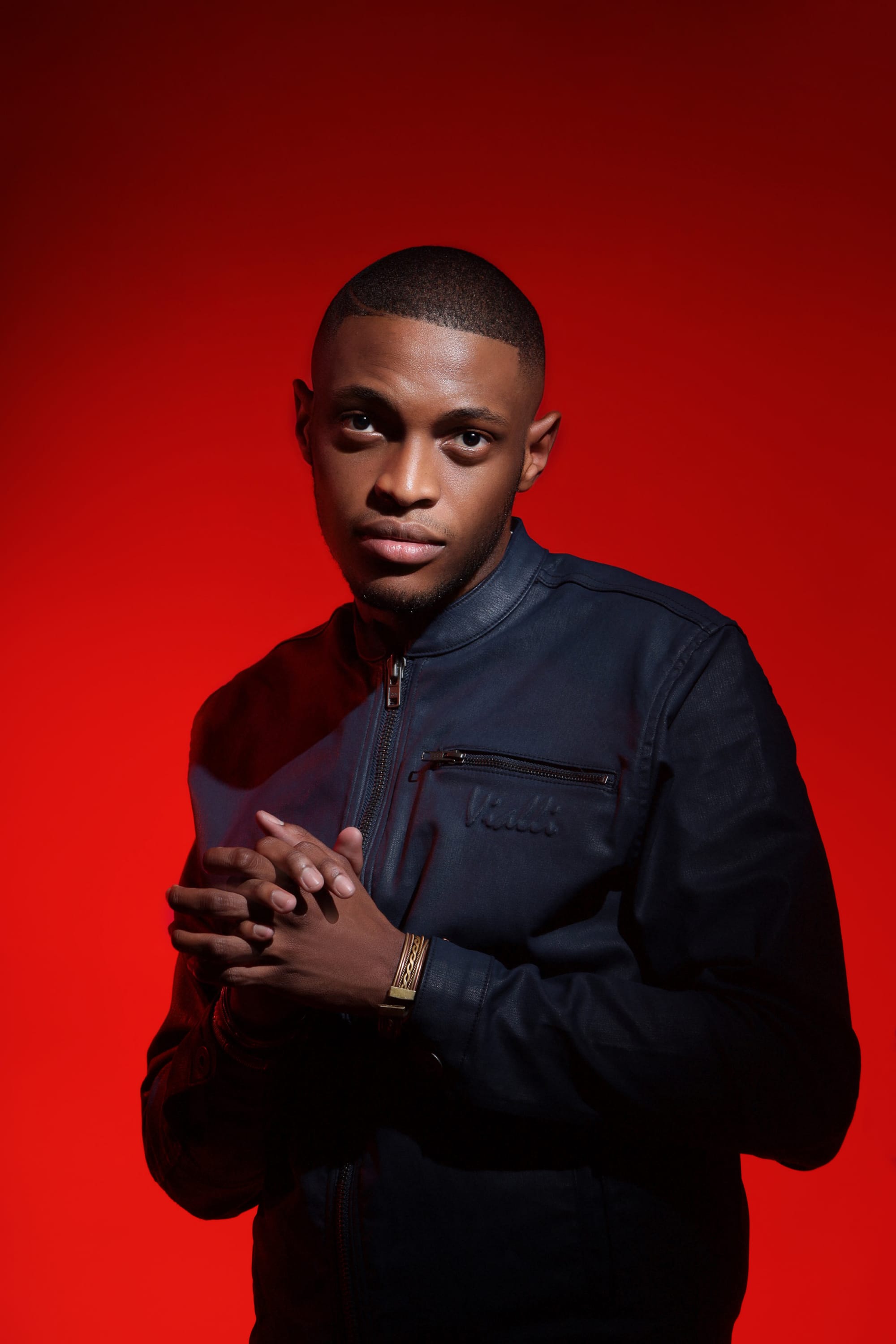
Member discussion